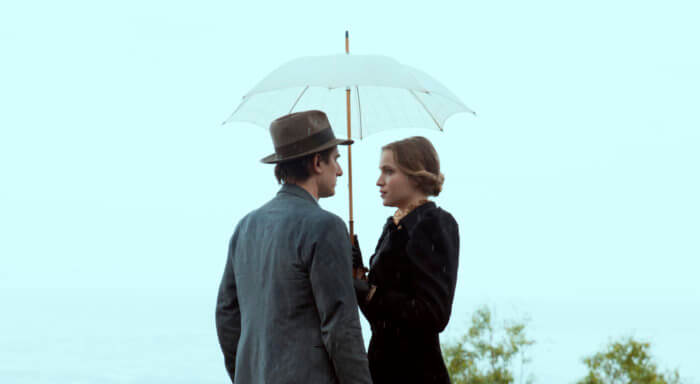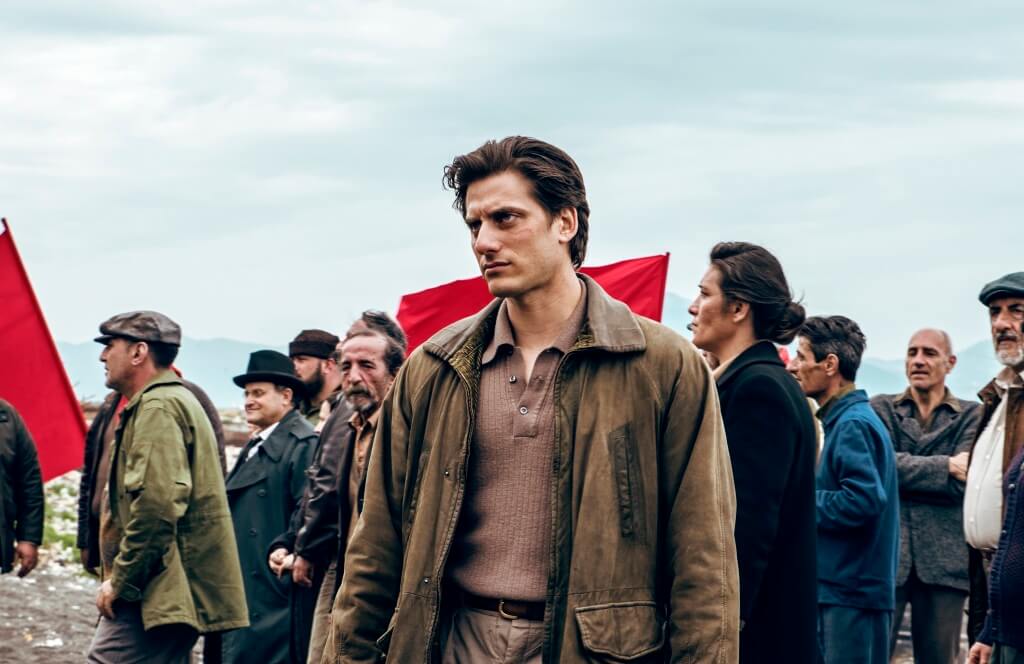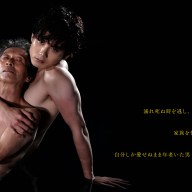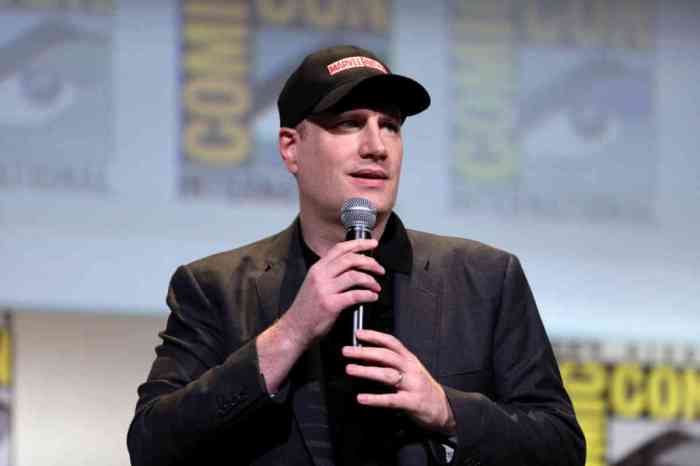A man tries to rise above poverty through art. He also feels that he needs to do so to impress a beautiful, well-off woman. He succeeds at the cost of his soul.
Those three sentences sum up the plot of Italian director Pietro Marcello’s latest film, “Martin Eden,” but they can’t convey its urgency or strangeness. It’s a slick, very entertaining period piece that will probably please Merchant-Ivory fans. It’s also an example of left postmodernism critiquing the culture it describes.
Martin Eden (Luca Marinelli, who played one half of an immortal gay couple in the Netflix superhero film “The Old Guard”) starts out as an uneducated sailor, toiling away on Naples’ waterfront. Inspired by his desire to court Elena Orsini (Jessica Cressy), he tries to make something more of himself through writing, although classist gatekeepers tell him to head back to primary school. While the rejection letters pile up and his relatives complain that he’s a bum mooching off them while his life races nowhere, he persists and eventually finds commercial success.
Pietro Marcello’s films slated to stream at Film at Lincoln Center in mid-October
Marinelli’s performance convincingly takes us through a character whose life is always a work in progress. For the first half of “Martin Eden,” the man is genuinely humble, and the spectator never questions the sincerity of his convictions. In a flashback to neo-realism, he drags Elena down an alley full of desperate sex workers and pimps through a plaza full of rubble to prove to her that the grinding life he writes about is real. But the more he publicly embraces his badly thought-out brand of libertarian politics, the more his life spins out of control. In the last half hour, Martin looks tired, with longer and blonder hair. As his popularity rises, he starts to look and act like an arrogant, strung-out rock star spouting someone else’s bad ideas. This peaks at a public Q&A session where critic Neil Bahadur’s comparison of the character to Kanye West in 2018 really rings true. Martin ultimately plays out the worst notions about the behavior of a male “genius,” hurting himself most in the process.
The setting of “Martin Eden” is always in flux. While it must span decades of Martin’s life, the timeframe always looks like Italy just after World War II. Constant talk about war can’t be pinned down to any actual one. Characters wear costumes evoking different decades in the same scene. Elena speaks about Charles Baudelaire as though his poetry’s rebellious spirit were a fresh shock. Some of Marcello’s imagery brings early 20th century cinema to mind, but his style apes the French New Wave and New Hollywood. In its opening scene, “Martin Eden” interpolates real footage of anarchist Errico Malatesta.

Throughout “Martin Eden,” Marcello incorporates techniques like having characters speak directly to the audience and using actual film footage of Italian history for flashbacks. (The entire movie was shot in 16mm.) Constant reminders that we’re watching a film don’t make Martin’s story any less involving, but Marcello’s gamesmanship reminds us that balancing fame and political conviction — or just trying to be both a celebrity and a decent person — hasn’t gotten any easier in the 111 years since Jack London wrote the source novel. London intended his work to be a warning against rejecting socialism in favor of individualism. To return to the Kanye West parallel, Martin mistakes embracing the mess he’s made of his life for liberation.
“Martin Eden” is Marcello’s first narrative feature, following a noteworthy series of experimental documentaries. Film at Lincoln Center is presenting it alongside three previous films of his. His 2009 “The Mouth of the Wolf,” which streamed briefly earlier this year on MUBI, is a love story between Enzo, a gangster with a lengthy rap sheet, and Mary, a trans woman and recovering heroin addict whom he met in jail, it’s oddly reticent to get too close to its subjects.
Shot in the city of Genoa, it starts off in much the same working-class seaside setting as “Martin Eden.” But “The Mouth of the Wolf” gives us fragments of Enzo’s experience, layered with Franco Leo’s voice-over on top, alongside images of Genoa’s street life that have no real connection to the couple. It seems to be enamored with its own formal cleverness, practically wearing Marcello’s detachment from Enzo and Mary’s emotions as a badge of honor.
Then, 45 minutes in, “The Mouth of the Wolf” gives us a two-shot of the couple talking intimately about their lives, addressing the audience directly. They speak for almost 20 minutes, finally explaining the allusions to Enzo’s hard life with which the film began. It’s far from being a major work, and it’s not clear how well it might stand on its own without knowing where Marcello wound up. But once again, American film releases have slowed down enough to let us backtrack and fill in the gaps.
MARTIN EDEN | Directed by Pietro Marcello | Kino Lorber | In Italian with English subtitles | Starts streaming through Film at Lincoln Center Oct. 16
THE MOUTH OF THE WOLF | Directed by Pietro Marcello | Grasshopper Film | In Italian with English subtitles | Available through projectr.tv and starts streaming through Film at Lincoln Center Oct. 16
To sign up for the Gay City News email newsletter, visit gaycitynews.com/newsletter.


































